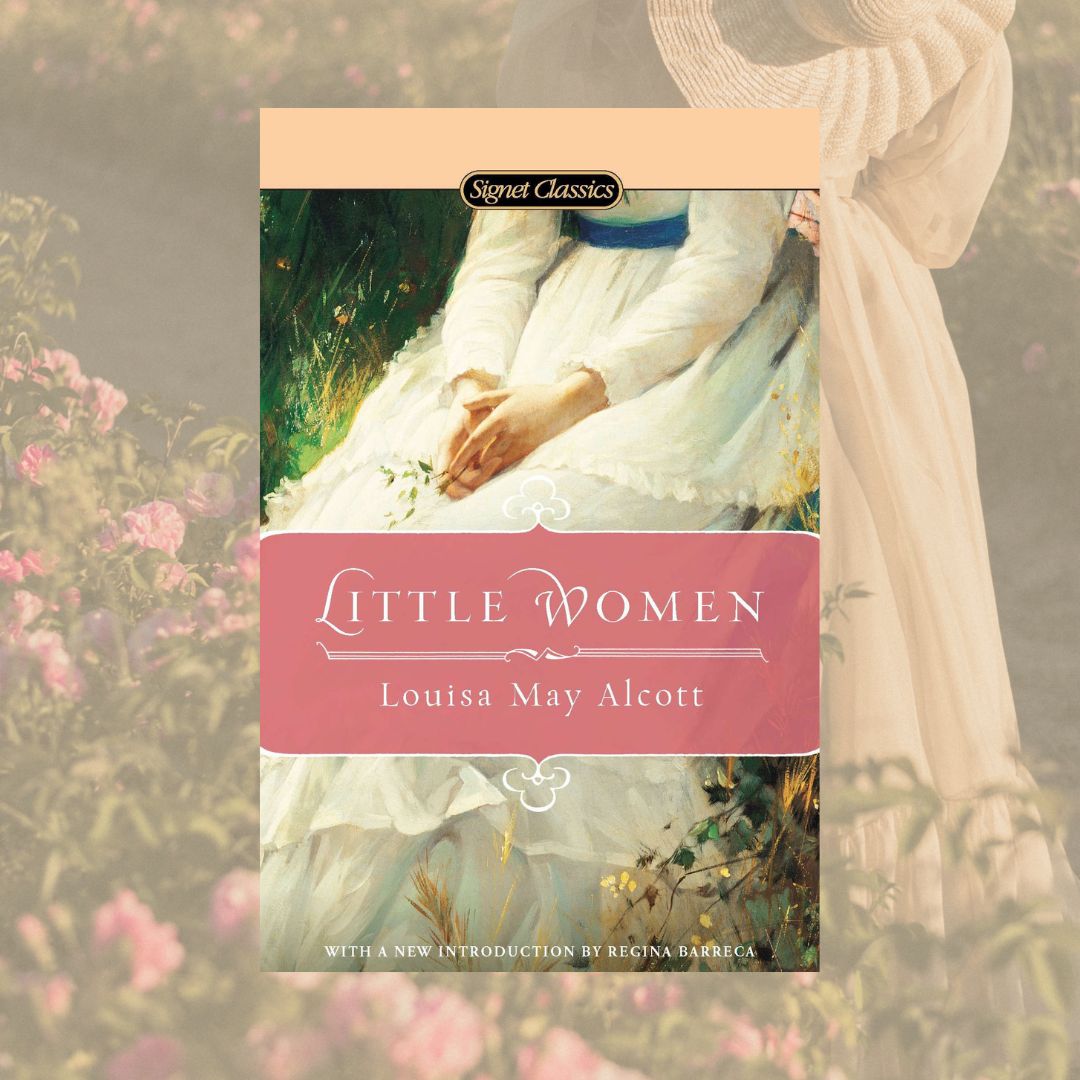Spoiler-Free Review
It’s not that this 155-year-old classic doesn’t have any merit – it definitely does – but if it weren’t for the audiobook, I don’t think I would have finished Little Women. And it still took me a couple months to complete.
What’s Little Women about?
Little Women follows the four March sisters as they grow up in the American Civil War era.
It’s quintessential American reading. I liked it, but didn’t love it.
First, the good.
This story has so many surprisingly relatable moments. In many ways, it was interesting primarily because a lot of things really haven’t changed in the general human experience since the 1860s. Growing up, trying to be a better person, arguing with siblings or friends and then making up, adjusting to adulthood and married life – many of these same experiences persist after all this time.
In some ways, it was probably even ahead of its time. Jo March is the second oldest, and rather than taking interest in a typically feminine role like her older sister Meg, she’s interested in a writing career. She even succeeds on this front, and makes money from her writing. Jo also spends the majority of the book saying she will probably never marry. All of this was likely unusual for literary heroines of the time.
Not to mention, Louisa May Alcott basically forged the coming-of-age genre with this book.
It’s also just a good story. It may not be perfect, but I can understand how it’s still beloved today. It has nuanced relationships at the forefront, loveable characters, and a family-centered plot. It’s the representation for the “All-American girl,” as each sister portrays a different version of her.
Now, my critiques.
This book has more of an episodic narrative rather than a defined plot. While that does make it unique (and certainly contributes to the wholesome nature of the story), some of these episodes were boring. While some chapters were undeniably important, others felt like filler. Did I need to read about the sisters having a picnic with Laurie’s foreign guests? (That was about where I checked out while reading the physical book).
Secondly – and this word has been used a lot in relation to this book – it was decidedly saccharine. It was sometimes sickly sweet. I say “sometimes” because this story doesn’t shy away from the hard truths of life, like poverty, rejection, and even death. But it gets labelled sweet because of how the characters contextualize these experiences.
For example, their father was away at war for the first half of the book, but not once was the war truly discussed. Instead, the characters describe how honorable it is to have one of their own fighting for their country. Never was the war lamented. While there were occasional expressions of worry or fear on their father’s behalf, the girls never expressed any negative feelings toward the war effort as a whole or toward the opposing side, which doesn’t feel realistic. And this, I think, perfectly embodies my overall issue with this book.
Lastly, I often got the feeling this story was romanticizing a form of life that never really existed. It definitely has the warm vibes that make it something you’d probably read by the fire during a wintery Christmas. A simple tale about how nothing matters more than family – but was this era really so simple? Probably not.
I know this is loosely based on the author’s real childhood, but the key word is “loosely.” I’m not sure I believe life was ever truly such a perfect portrait of “American virtues.” Reading about Alcott’s real life experiences only highlights this point further.
But it’s harmless.
It’s wholesome literature that’s meant to tell a story about life – it doesn’t need to be a critique of anything. And perhaps that’s why it has persisted for over a century and a half.
I want to be fair in this review. Reading this as an adult who tends not to prefer wholesome literature obviously colors my opinion. According to a few sources I’ve seen, its commercial success was also a surprise to Alcott and her publishers, whose personal views were that it was fairly dull. She wrote it because her publisher asked her to, and for money, but it wasn’t her preference. Perhaps Alcott and I would’ve been more alike than this book suggests.
Just as an aside, I do respect the subversion of romantic expectations in this story. I felt Alcott really exerted her will there – she herself never married and is even quoted as saying, “I am more than half-persuaded that I am a man’s soul put by some freak of nature into a woman’s body…because I have fallen in love with so many pretty girls and never once the least bit with any man.”
Should you read Little Women?
It’s classic American canon. If that interests you, I recommend it. Also, if you like historical stories that give you warm and cozy feelings, or stories about girlhood and sisterhood and growing up, then you’ll like Little Women.
If you liked this review, please consider subscribing! I don’t yet have a newsletter or anything fancy (I’m a one-woman show and I do this for fun), but if you subscribe you’ll get an automated email notification like this on Tuesdays and Thursdays at 11:30am Central time when I post a new blog:

I would love to have you around! Subscribe below.








2 responses to “Little Women: Sweet as a toothache”
Hhmm, do you think Louisa May Alcott was transgender (or at least gay?)
I suspect she was a lesbian! It’s obviously speculation, Alcott could’ve been trans, but I think given the way the characters in Little Women talk about gender and the fact that Alcott was a staunch feminist, it’s probably more likely that she was gay. I feel that when she says “man’s soul put in a woman’s body” it’s more her sense of humor about loving women.